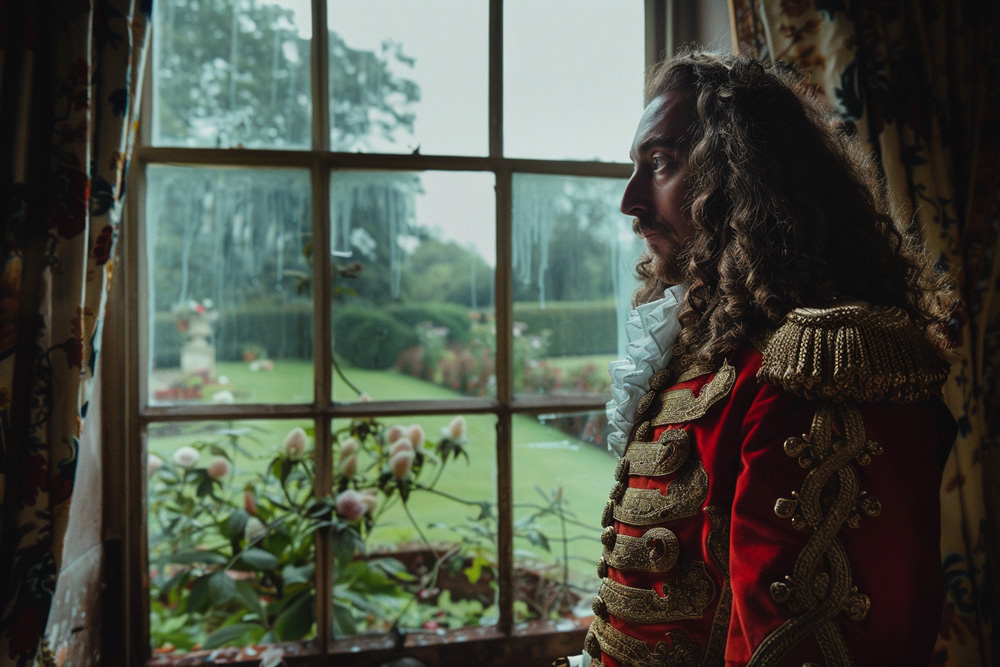KidZone Maritime Stories (Historical Fiction)
A King's Burden
King William III sat in his private chambers, gazing out the window at the meticulously manicured gardens of Hampton Court Palace. The gentle hum of summer filled the air, and he longed to indulge in his favorite pastime—gardening. The king found solace in the earth, the simple pleasure of tending to his plants offering a rare escape from the ceaseless demands of his position.
But today, as with so many others, his thoughts were interrupted by the nagging complexities of governance. His court was abuzz with the latest scandal involving some privateer-turned-pirate, a Captain William Kidd. The king sighed deeply, feeling the weight of the crown pressing heavily upon him. The name Kidd barely registered in his mind, one of countless nuisances brought to his attention by pestering nobles and agitated merchants.
William III was a practical monarch, a man more concerned with the stability and prosperity of his realm than with the minutiae of individual grievances. Yet the endless stream of complaints and demands from the powerful East India Company, influential merchants, and his own ambitious courtiers had made it impossible to ignore this particular case. It seemed everyone had an opinion, and all were determined to ensure the king understood the gravity of the situation.
The East India Company, with its vast wealth and influence, had been particularly vocal. Their representatives filled his court, their insistent voices a constant drone in his ears. They spoke of disrupted trade routes, of the need to assert British dominance on the high seas, and of the dangers posed by men like Kidd. The merchants, too, clamored for action, fearing for their investments and demanding retribution.
King William found it all tiresome. He had been dealing with more pressing matters—war on the continent, political machinations at home, and the never-ending struggle to balance power among the European monarchies. This Captain Kidd was a minor player in the grand scheme of things, yet his presence seemed to cast a shadow over the court, darkening the mood of his servants and advisors.
He glanced at a nearby table, where a sheaf of papers awaited his attention. Reports and petitions regarding Kidd lay among them, the ink barely dry from the latest round of complaints. William felt a surge of irritation. He had hoped for a quiet morning in his garden, not another confrontation with the tiresome bureaucracy of his kingdom.
With a resigned sigh, he called for one of his aides. The young man, eager and efficient, hurried to the king's side. William gestured to the pile of documents.
"Tell me," he said, his voice weary, "what is the latest on this Captain Kidd business? Why do these papers still occupy my desk?"
The aide, sensing the king's impatience, quickly summarized the situation. Captain Kidd had been apprehended and was set to stand trial for piracy and murder. The East India Company demanded justice, while nobles like the Earl of Bellomont had distanced themselves from Kidd to protect their interests. The trial was a matter of public and political significance, one that could not be ignored.
As the aide spoke, his face fell, the youthful enthusiasm draining away. It was clear he had once fallen under the glamorous spell of the age of piracy, the tales of daring adventures and vast treasures having captivated his imagination. King William noticed the young man's disillusionment and couldn't help but chuckle to himself. Ah, the naivety of youth, he thought, remembering his own younger days when the world seemed so black and white.
"Very well," the king said, his tone now stern. "Ensure that justice is done. Make an example of this Kidd if it pleases them. But spare me the details. I have more important matters to attend to."
The aide bowed, but the disappointment in his eyes was unmistakable. William watched him leave, the young man’s shoulders slightly slumped. The king’s amusement faded, replaced by a sense of obligation. He had a duty to temper such youthful idealism with the harsh realities of governance.
Turning his gaze back to the gardens, the king allowed himself a brief smile. The world of piracy, with its allure and danger, was a fantasy that many young men succumbed to. But here, in the corridors of power, dreams had to yield to the pragmatic demands of ruling a kingdom.
King William rose from his chair and walked to the window, looking out at the greenery that beckoned him. He longed to feel the soil between his fingers, to lose himself in the quiet, methodical work of tending to his plants. But the responsibilities of the crown were relentless, and moments of peace were fleeting.
As he stood there, the king felt a pang of empathy for the distant figure of Captain Kidd. Both men, in their own ways, were ensnared by forces beyond their control, their fates shaped by the demands and expectations of others. But empathy was a luxury he could ill afford. The realm demanded his attention, and so he turned away from the window, ready to face the next challenge, the next distraction, with the resolve of a king who understood that duty, not desire, was the true measure of his reign.
